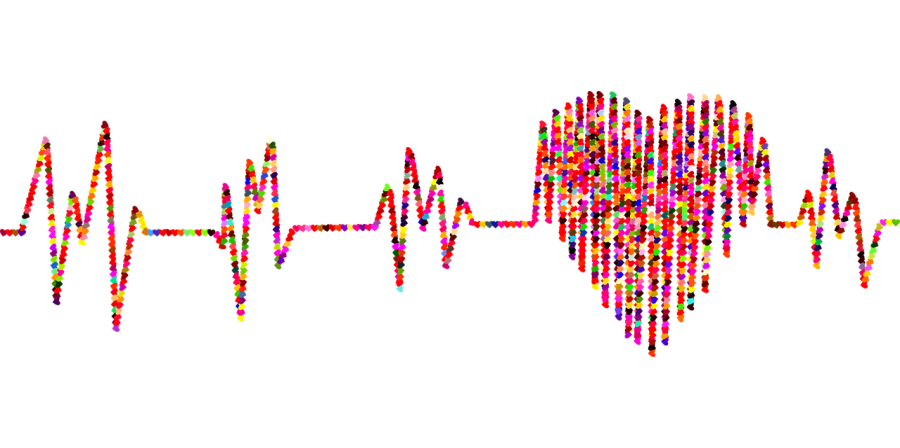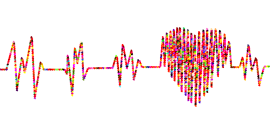Medical translations

-
Category
Languages Services:
The healthcare sector produces various content in the form of drug inserts, clinical trials, drug approvals, health insurance documents, reports, etc. In many cases, all of this material needs to be used in another country where a different language is spoken. In these cases, it is necessary to provide a medical translation.
What are medical translations?
Medical translations fall into the category of technical and scientific translations, an area that requires a great deal of skill and knowledge on the part of the translator, as he or she must not only translate literally, but also know the medical terminology and how best to perform the translation.
How are medical translations done?
Since medical translations are very specialized, languageweb24.com relies on a native medical team with certifications in the healthcare field. Therefore, our team is able to provide translations in a wide range of medical specialties.
And it is precisely because of this technical accuracy, high quality standards and rigor in translations that languageweb24.com works with important clients who have always received excellent results and therefore trust our translations.
Medical translation must be accurate
Accuracy of medical translation is crucial, and the delivery date seems to be a matter of life and death.
Accuracy of medical translation is crucial, and the delivery date seems to be a matter of life and death. When it comes to medical translation services, accuracy is often a deciding factor.
Abbreviations, a challenge in medical translations
Abbreviations are quite common in medical translations. In many cases, there is more than one possible abbreviation for the same term or the same abbreviation for different terms. A survey analyzing medical errors in the U.S. found that between 1,500 and 30,000 errors were due to abbreviation issues.
Other pitfalls in medical translations: Neologisms, synonyms, and the evolution of medical terminology
One of the peculiarities of medical language is the constant occurrence of neologisms (newly created words or expressions), the presence of synonyms, and the constant mixing of obsolete (or nearly obsolete) terms with new terminology. The pace of these changes makes it difficult to update and correct references in specialized dictionaries and glossaries, which ultimately leads to translation problems.
Well-trained translators with a focus on medical translation: the best medicine for quality medical translation
However, the most important approach to avoid translation errors in the medical field is the same as for legal and marketing translations: a very well-trained translator. Let's consider two examples:
Medullary thyroid carcinoma (or thyroid tumor) Sometimes you will find the following translation: "spinal cord cancer" when the term "medullary thyroid carcinoma" should have been used.
Mild dementia is often translated as "mild dementia," although the correct term is "mild dementia."
What are medical translations?
Medical translations fall into the category of technical and scientific translations, an area that requires a great deal of skill and knowledge on the part of the translator, as he or she must not only translate literally, but also know the medical terminology and how best to perform the translation.
How are medical translations done?
Since medical translations are very specialized, languageweb24.com relies on a native medical team with certifications in the healthcare field. Therefore, our team is able to provide translations in a wide range of medical specialties.
And it is precisely because of this technical accuracy, high quality standards and rigor in translations that languageweb24.com works with important clients who have always received excellent results and therefore trust our translations.
Medical translation must be accurate
Accuracy of medical translation is crucial, and the delivery date seems to be a matter of life and death.
Accuracy of medical translation is crucial, and the delivery date seems to be a matter of life and death. When it comes to medical translation services, accuracy is often a deciding factor.
Abbreviations, a challenge in medical translations
Abbreviations are quite common in medical translations. In many cases, there is more than one possible abbreviation for the same term or the same abbreviation for different terms. A survey analyzing medical errors in the U.S. found that between 1,500 and 30,000 errors were due to abbreviation issues.
Other pitfalls in medical translations: Neologisms, synonyms, and the evolution of medical terminology
One of the peculiarities of medical language is the constant occurrence of neologisms (newly created words or expressions), the presence of synonyms, and the constant mixing of obsolete (or nearly obsolete) terms with new terminology. The pace of these changes makes it difficult to update and correct references in specialized dictionaries and glossaries, which ultimately leads to translation problems.
Well-trained translators with a focus on medical translation: the best medicine for quality medical translation
However, the most important approach to avoid translation errors in the medical field is the same as for legal and marketing translations: a very well-trained translator. Let's consider two examples:
Medullary thyroid carcinoma (or thyroid tumor) Sometimes you will find the following translation: "spinal cord cancer" when the term "medullary thyroid carcinoma" should have been used.
Mild dementia is often translated as "mild dementia," although the correct term is "mild dementia."
About Me
Medical translations by a health professional: a wrong approach
One might be tempted to entrust a medical translation to a health care professional if he/she has demonstrated some aptitude for writing. However, the ideal approach is to choose a translator who specializes in the medical field. Translating is a profession that requires special techniques and skills.
Poorly translated instructions in medical lead to errors in practice
A blog reports on the case of 47 poorly performed knee replacement implantation in a Berlin hospital. The cause of the problem? Poorly translated instructions for use. In the original English text, the prosthesis was described as follows: non-modular cemented. This sentence was translated as "this prosthesis does not require cement." The prostheses were implanted without cement, with terrible consequences for the implanted patients. In short, to ensure the quality of a translation, nothing can replace a specialized, well-trained professional, especially in a field as delicate as medicine.
Medical translation needs precision above all
In any medical document, technical terms related to the field of health are used. It is essential to respect this terminology. Moreover, medical translation is based on many fields of expertise. Therefore, it is necessary to find a qualified and experienced professional to handle your translation project. Just as you would visit a cardiologist to treat a heart condition, you should hire a translator who specializes in the field that your document will cover. Not entrusting your translation to a specialist would be like asking a general practitioner to perform heart surgery.
Medical and pharmaceutical translations
In the field of medical and pharmaceutical translation, translators must not make mistakes and inaccuracies. They can have serious consequences in terms of health, cost and credibility. Do not entrust the translation of medical documents to just anyone. Whether it's a prescription, package insert, or dosage for a new medication, look for medical translation agencies that specialize in this type of translation.
One might be tempted to entrust a medical translation to a health care professional if he/she has demonstrated some aptitude for writing. However, the ideal approach is to choose a translator who specializes in the medical field. Translating is a profession that requires special techniques and skills.
Poorly translated instructions in medical lead to errors in practice
A blog reports on the case of 47 poorly performed knee replacement implantation in a Berlin hospital. The cause of the problem? Poorly translated instructions for use. In the original English text, the prosthesis was described as follows: non-modular cemented. This sentence was translated as "this prosthesis does not require cement." The prostheses were implanted without cement, with terrible consequences for the implanted patients. In short, to ensure the quality of a translation, nothing can replace a specialized, well-trained professional, especially in a field as delicate as medicine.
Medical translation needs precision above all
In any medical document, technical terms related to the field of health are used. It is essential to respect this terminology. Moreover, medical translation is based on many fields of expertise. Therefore, it is necessary to find a qualified and experienced professional to handle your translation project. Just as you would visit a cardiologist to treat a heart condition, you should hire a translator who specializes in the field that your document will cover. Not entrusting your translation to a specialist would be like asking a general practitioner to perform heart surgery.
Medical and pharmaceutical translations
In the field of medical and pharmaceutical translation, translators must not make mistakes and inaccuracies. They can have serious consequences in terms of health, cost and credibility. Do not entrust the translation of medical documents to just anyone. Whether it's a prescription, package insert, or dosage for a new medication, look for medical translation agencies that specialize in this type of translation.
 English
English

